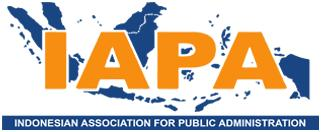The Evaluation of Policies and Success Factors of E-Government Parking Tax Implementation in Capital Region of Jakarta
Abstrak
The implementing of parking tax e-government policy in DKI Jakarta has been going on for approximately 7 (seven) years. In its implementation, there are many advantages and disadvantages that have an impact on the performance targets that have been set. This study aims to analyze and evaluate the policies and factors that determine the success of implementing the parking tax e-government in DKI Jakarta. This study uses the post-positivism method which uses theory as a reference in understanding research problems. The evaluation results of this study indicate; (1) the benefits of the online system have not significantly helped tax officers in monitoring compliance with taxpayers because only 3.37% of taxpayers routinely report their business transactions; (2) e-government applications have not been able to integrate Bapenda, DPMPTSP and UP Parking; (3) sanctions have not been applied firmly; (4) the business license revocation sanction is not in accordance with the higher tax regulations; and (5) the obligation to report business transactions online has not been optimally applied to all parking taxpayers, because there is still unpreparedness both in terms of taxpayers and electronic device support.
Kata Kunci
Teks Lengkap:
PDF (English)Referensi
Alink, Matthijs & Victor van Kommer. (2011). Handbook on Tax Administration.Amsterdam: IBFD Publications.
Badan Pusat Statistik Provinsi DKI Jakarta. (2018). Statistik Transportasi Jakarta 2018, BPS-DKI: Jakarta, 2018. ISSN: 2087-9482.
Bhatnagar, Subash, (2009). Unlocking E-Government Potential: Concepts, Cases and Practical Insights. SAGE Publications India Pvt Ltd: India
Creswell, John W. (2018). Research Design: Qualitative, Quantitative, and Mixed Methods Approatches. London: Sage Publications.
Dea M., Entang A.M & Elisa S.(2020) Critical Success Factors in Implementing Employee Information System Based On E-Government in the Bureau of Public Affairs at The Regional Secretariat of West Java Province. Jurnal Manajemen Pelayanan Publik 4(1),82. https://doi.org/10.24198/jmpp.v4i1.28003
Dunn, William N. (2018). Public Policy Analysis: An Integrated Approach Sixth Edition. New York: Routledge.
Erhan, Noviandi, Mardiyono, Romy Hermawan, & Hideaki Ohta. (2017). Evaluation of E-Government Implementation in Indonesian Local Government (Case Study of the Implementation of Electronic Monitoring and Evaluation in Balangan Local Government), Journal of Public Administration Studies Vol.1 No 4. pp 9-15.
Hanydar, Rizki Novela & Yozi Aulia Rahman. (2017). The Strenghtening Strategy of Tax Parking in Semarang Regency.Economics Development Analysis Journal Vol. 6 No.4
Hussein,R.K., & Hasan Selamat,M.A (2007). The Impact of Technological Factors on Information Systems Success In The Electronic-Government Context. Business Process Management Journal.
I-News.ID. (2020). (Parking Tax Revenue in Jakarta Leaks, Code Gagas Online System (accessed on 31 August 2020). https://www.inews.id/news/megapolitan/pendapatan-pajak-parkir-di-jakarta-bocor-sandi-gagas-sistem-online
Kinsey,Mc & Company (2018). Unlocking Success in Digital Transformation. Mc Kinsey Company Insight.:New York
Neuman, William Lawrence. (2014). Basics ofSocial Research: Qualitative and Quantitative Approaches, 3rd Edition. Edinburgh Gate: PEARSON.
Organisation for Economic Cooperation and Development (OECD). (2017). Revenue Statistic in Asian Countries, trends in Indonesia, Japan, Kazakhtan, Korea, Malaysia, the Philippenest and Singapore. Paris. OECD Publications Service.
Open Data Jakarta. (2020). Parking Taxpayer Data Per DKI Jakarta Region. (accessed on 03 September 2020). https://data.jakarta.go.id/dataset/data-objek-wajib-pajak-parkir-
Organisation for Economic Cooperation and Development (OECD). (2016). OECD e-Government Studies: The e-Government Imperative. Paris: OECD Publications Service.
Pemerintah Negara Indonesia. Undang –Undang Nomor 28 Tahun 2009 Tentang Pajak Daerah dan Retribusi Daerah (Lembaran Negara Republik Indonesia Tahun 2009 Nomor 130)
Pemerintah Negara Indonesia. Undang –Undang Nomor 23 Tahun 2014 Tentang Pemerintah Daerah (Lembaran Negara Republik Indonesia Tahun 2014 Nomor 244)
Pemerintah Provinsi Daerah Khusus Ibukota Jakarta. Peraturan Daerah Nomor 6 Tahun 2010 Ketentuan Umum Pajak Daerah (Lembaran Daerah Provinsi Daerah Khusus Ibukota Jakarta Tahun 2010 Nomor 6)
Pemerintah Provinsi Daerah Khusus Ibukota Jakarta. Peraturan Gubernur Nomor 154 Tahun 2019 Tentang Organisasi dan Tata Kerja Bapenda (Berita Daerah Provinsi Daerah Khusus Ibukota Jakarta Tahun 2019 Nomor 62052)
Pemerintah Provinsi Daerah Khusus Ibukota Jakarta. Peraturan Gubernur Nomor 98 Tahun 2019 Tentang Pelaporan Data Transaksi Usaha Wajib pajak Secara Elektronik (Berita Daerah Provinsi Daerah Khusus Ibukota Jakarta Tahun 2019 Nomor 71046)
Presiden Republik Indonesia. Instruksi Presiden Nomor 3 Tahun 2003 Tentang Kebijakan dan Strategi Nasional Pengembangan E-Government.
Prawirosentono, Suryadi dan Dewi Primasari.(2015). Employee Performance and Motivation: Building a Competitive Organization in the World Free Trade Era, Third Edition, Faculty of Economics and Business, UGM: Yogyakarta.
Rosdiana, Haula & Edi Slamet Irianto. (2014). Introduction to Tax Science: Policy and Implementation in Indonesia. Jakarta: Rajagrafindo.
Sukarno,D. (2017). Infrastructure and Technology in Districts in Bandung Regency in Supporting the Implementation of the Patent Program (District Integrated Administration Service). Jurnal Manajemen Pelayanan Publik, 1(1), 109.https://doi.org/10.24198/jmpp.v1i1.13565
Wagner, Claire, Barbara Kawulich, & Mark Garner. (2012). Doing Social Research: A Global Context. UK: McGraw-Hill Education.
Yong, James, SL. (2003). Enabling Public Services Innovation in 21th Century: E-Government in Asia. TIMES:Singapore.
DOI: https://doi.org/10.24198/jmpp.v4i2.30701
Refbacks
- Saat ini tidak ada refbacks.
Jurnal Manajemen Pelayanan Publik Indexed By:



This work is licensed under a Creative Commons Attribution-ShareAlike 4.0 International License.


















21.png)



.png)